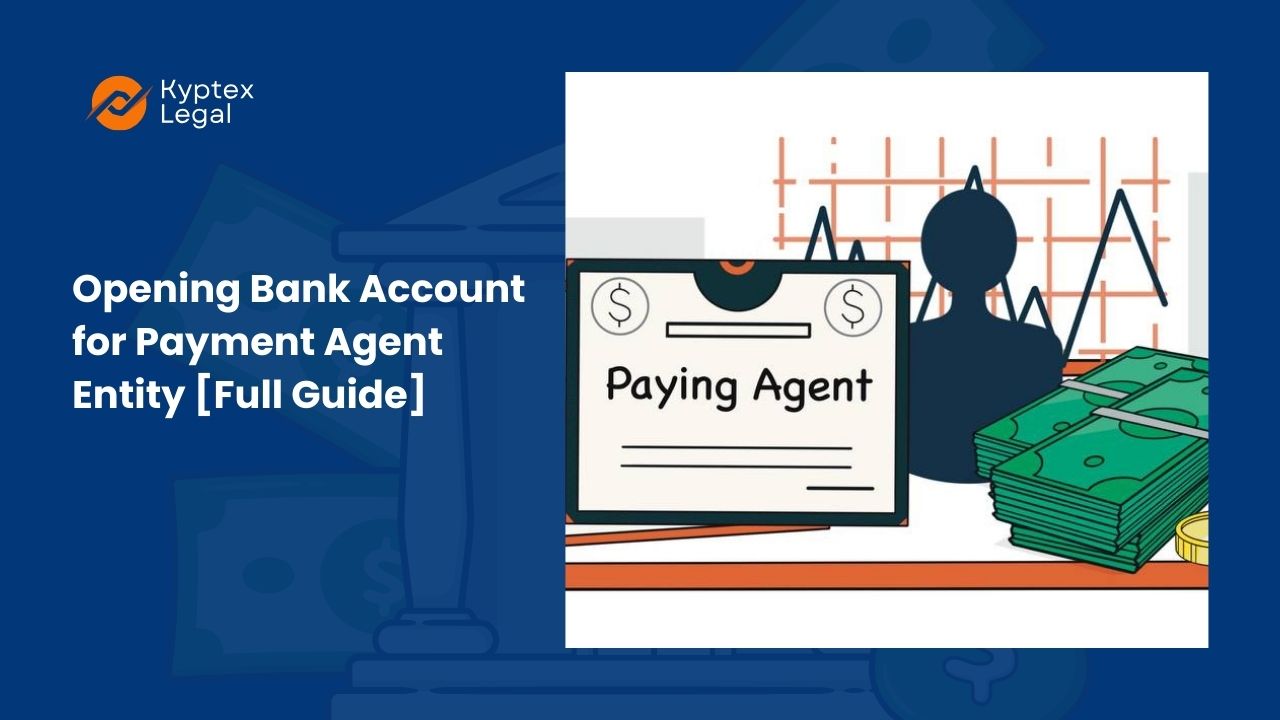
The expansion of e-commerce, online gaming, and other industries has substantially increased the role of payment agents. Payment agents serve as intermediaries between service providers and consumers, ensuring that payments are processed efficiently on their behalf. In order to operate efficiently, these entities require a designated bank account to oversee inflows and outflows.
Why Dedicated Bank Account Is Essential For Payment Agents?
There are numerous reasons why payment agent entities require a dedicated bank account:
- Transparency: The accurate monitoring of payments that have been received and disbursed.
- Regulatory Compliance: Complying with the regulations of AML and CTF.
- Effective Cash Flow Management: Business and operational funds are segregated appropriately to ensure efficient cash flow.
- Audit-readiness: The provision of traceable transaction records by a distinct account facilitates financial audits.
Finding Payment Agent-Friendly Banks
It is imperative to select the appropriate financial partner, as not all institutions are equally well-suited to payment agents. The subsequent criteria should be taken into account:
- Global Presence and Reach: A bank with international capabilities and correspondent networks is essential if the entity operates across borders.
- Digital Banking Services: In an effort to optimize operations, evaluate online tools such as API integration, payment gateways, and multi-currency accounts.
- High-Risk Tolerance: It is crucial to collaborate with a bank that comprehends the inherent risks of payment agents and is prepared to collaborate with them.
- Fee Structure: Evaluate the fees for incoming and outgoing payment transfers (typically charged in percentages), account maintenance (also referred to as monthly minimum fees), and currency conversion costs.
Preparing The Required Business Documentation
In order to guarantee conformance with banking and regulatory standards, it is necessary for a payment agent entity to submit specific documentation when opening a bank account. Documents that are frequently encountered include:
- Certificate of Incorporation: Evidence of the legal establishment of the payment agent entity.
- Business License (if applicable): In certain regions, payment processors are required to obtain specialized licenses in order to conduct business.
- Memorandum and Articles of Association: To illustrate the company’s operations.
- Identification of Key Personnel: Valid identification, such as passports or national ID cards, must be provided by directors, shareholders, and authorized signatories.
- Proof of Address: Recent utility bills or lease agreements for the company and its essential personnel.
- Explanation of Fund Flow: Ensure that you are able to give a clear explanation of the incoming and departing flows of your payment agent.
- Volume Projections: In order to establish a business case for account opening, certain institutions may request these to ascertain the anticipated volume of transactions.
Preparing The Required Compliance Documentation
In order to forestall unlawful activities, banks implement rigorous compliance protocols. Your entity is required to exhibit transparency in its operations and provide the following as a payment agent:
Transaction History (if applicable): Records of previous transactions may be necessary for existing businesses.
Client Screening Procedures: The bank may inquire about the method by which you conduct due diligence on your customers.
Compliance Policies: Please provide the bank with any internal policies you have in place for KYC and AML to demonstrate your dedication to legal standards.
Finalizing The Application Process
The following steps should be taken to submit your application once your documents are prepared and you have chosen the appropriate bank:
- Complete the Application Form: This is frequently accomplished online.
- Submit the necessary documents: As previously mentioned, submit all required documentation.
- Complete the KYC/AML verification process: Be prepared for the bank to request additional documentation or ask for further information.
- Video Meeting: In certain instances, banks may request a video meeting in order to gain a more comprehensive understanding of your business.
- Initial Deposit: In order to activate an account, certain financial institutions necessitate an initial deposit.
Post-Account Opening Actions
Upon account opening, the subsequent best practices should be taken into consideration to guarantee seamless operations:
- Consistent Monitoring: Monitor account activity to identify any suspicious transactions.
- Compliance Reviews: Ensure that your KYC/AML policies are consistently updated to reflect regulatory changes.
- Accurate Record-Keeping: Conduct regular reconciliations of your transactions to ensure that they are accurate.
- Foster Positive Relationships with the Bank: Maintaining positive relationships with your bank can result in more favorable services and support.
Conclusion
It is imperative that a payment agent entity establish a bank account. By adhering to the process delineated in this guide, your payment agent entity will be well-positioned for success, as it will have the necessary financial infrastructure to manage payment flows.